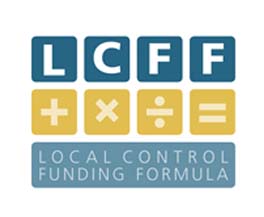Gov. Jerry Brown presented his 2014-15 budget proposal on Thursday, Jan. 9. The governor’s word of the day was prudence. His budget proposal continues a focus on paying down the state wall of debt. That being said, the budget does provide a Proposition 98 level of spending that is more than $6 billion above the enacted 2013-14 level. Total Prop 98 spending comes to $61 billion—this is about $5 billion more than the level of Prop 98 in 2008-09. Under the governor’s proposal, per-pupil funding from all sources comes to $9,194 in Prop 98 funds and $12,833 when all funds are considered, including federal money.
Senate confirms State Board Members Burr, Straus and Sandoval
After what Senate President pro Tem Darrell Steinberg called the most intensive Rules Committee hearing during his tenure, the full Senate confirmed Gov. Jerry Brown’s nomination of Sue Burr, Ilene Straus and Nicolosa Sandoval to California’s State Board of Education on Jan. 13.
CSBA-Drexel partnership yielding practical guidance for school boards
The CSBA/Drexel University Post-Doctoral Fellowship Program, launched in the spring of 2013, provides CSBA members with valuable information from the research work of the post-doctoral fellows and for the fellows, in turn, to have the opportunity to share their research with a key audience of school board members. Working with Policy and Programs staff, the fellows edited their extensive dissertation research into user-friendly governance briefs and succinct presentations at this year’s Annual Education Conference and Trade Show.
Prelude to a Budget: Assembly Democrats release their 2014-15 budget priorities
The Assembly Democrats released an outline of a 2014-15-budget proposal called “Blueprint for a Responsible Budget” on Dec. 11, just a month before the Gov. Jerry Brown is to release his budget proposal. The outline is organized around two themes: Ensuring Stability and Expanding Opportunity. It does not contain specific expenditures or funding levels; the proposals are to serve as guideposts throughout the budget process and will be updated and refined as additional fiscal information becomes available.
Urban districts look to Linked Learning partnerships as a way to promote equity
The Urban School Districts Luncheon, held during CSBA’s Annual Education Conference and Trade Show in San Diego, focused on veteran board member perspectives of Linked Learning implementation. The event provided an extended opportunity for governance teams, Business Affiliates, and experts from the field a chance to network and discuss how they might partner together to enhance public education within their districts.
How can parents help their children succeed in school?
School district and county Local Control and Accountability Plans provide excellent opportunities for school district and county leaders to form new relationships with parents, as well as enhance existing ones. According to the panelists, if school district leaders genuinely engage parents in the LCAP process they will find enthusiastic allies in their children’s education.
Do healthy kids make good learners?
Regular check-ups, dental care, eyeglasses, and other needed preventive care make a difference in how well children learn. Kids who are insured miss fewer school days and are better able to concentrate in class.
Students display their power—and prowess—at the State Board’s November meeting
Several dozen students traveled to Sacramento with the California Association of Student Councils (CASC) to spend a few days researching and debating education policy and eventually designing policy recommendations to be presented to the SBE. Not only did the presenters have an impressive grasp of the latest academic research, they skillfully spun the research into actionable proposals that could work in the real world.
Let’s restore the civic mission of California schools
In California and across the nation, research is revealing a very troubling ‘civic learning opportunity gap.’ Students attending schools that serve populations with higher socio-economic status have many more civic learning opportunities than students attending schools serving lower SES populations, minority populations and those serving high concentrations of recent arrivals to our nation. Schools facing pressure to make ‘annual yearly progress’ are all too often significantly reducing instructional time for civic learning/social studies, or in some cases eliminating the subject altogether to concentrate on math and reading.
How can California schools reconcile 3 accountability systems?
As the Local Control Funding Formula and its Local Control and Accountability Plan are added to existing accountability measures under No Child Left Behind and the Common Core State Standards, education policymakers are talking about how local educational agencies can coordinate the three accountability systems. At a recent seminar hosted by Policy Analysis for Education, CSBA Assistant Executive Director for Policy and Programs Angelo Williams, Ed.D., joined several state-level education policymakers to discuss the different approaches to accountability and offer their best suggestions for going forward.









